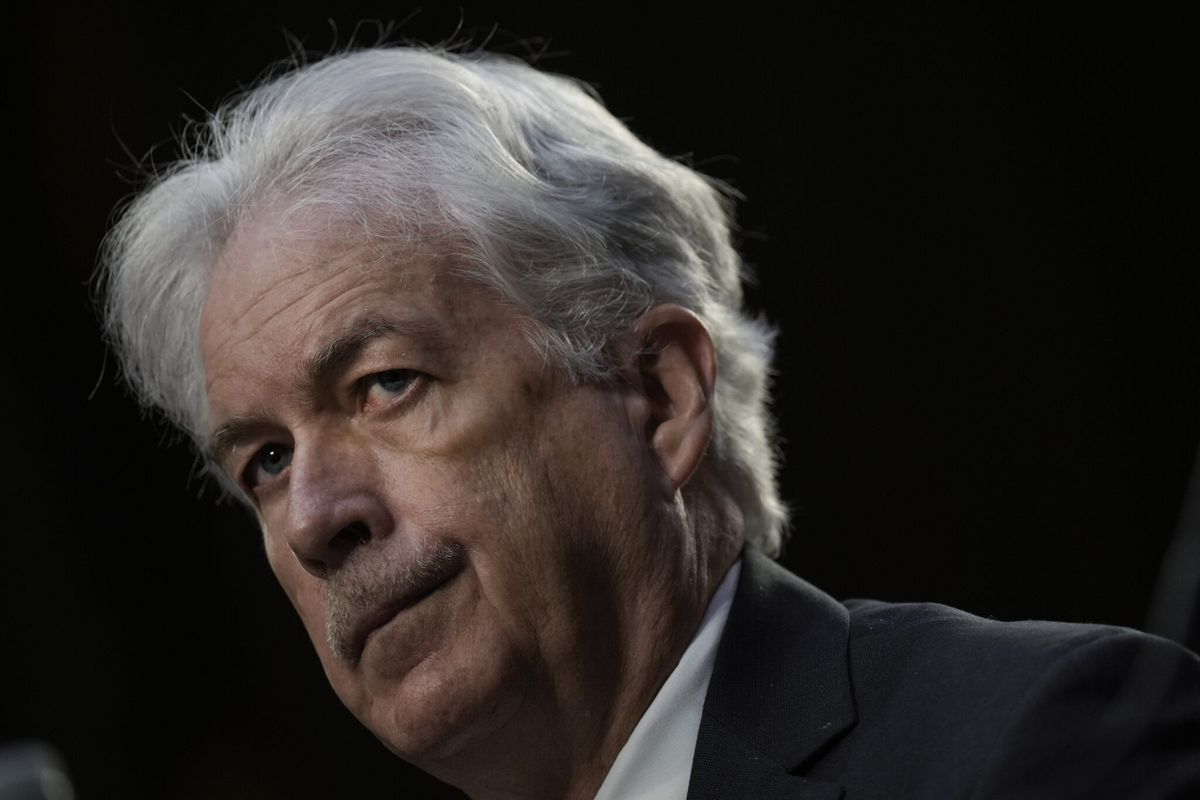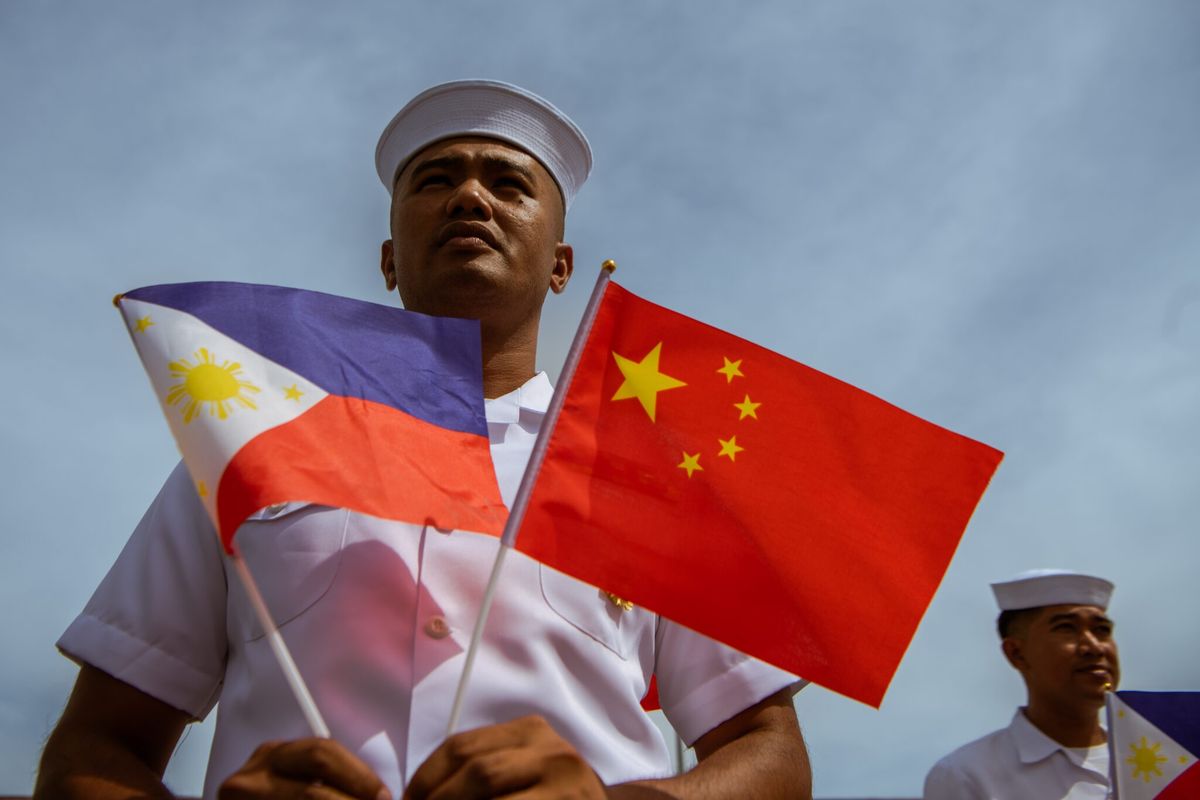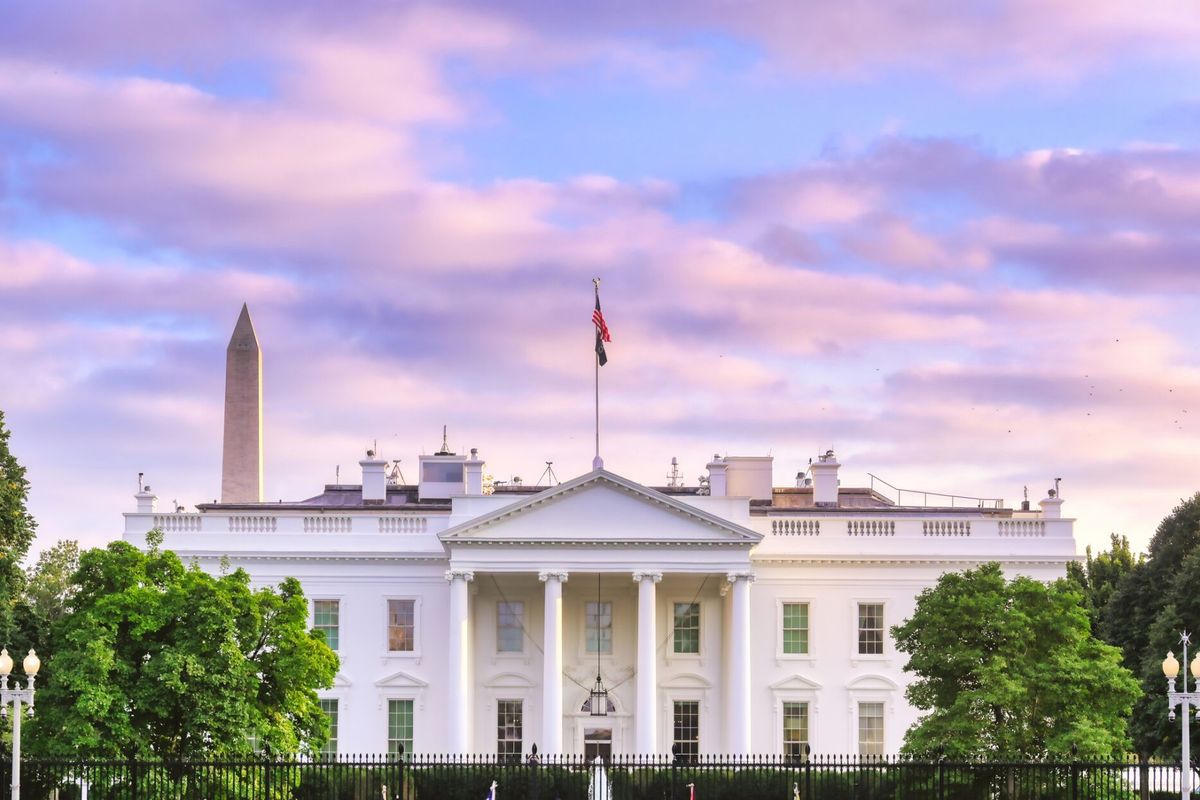ANALYSIS/INTERVIEW — Chinese President Xi Jinping and Russian President Vladimir Putin ended talks in Moscow this week by declaring that their alliance was driving geopolitical change around the world.
“Right now, there are changes – the likes of which we haven’t seen for 100 years – and we are the ones driving these changes together,” Xi told Putin as he departed Russia’s capital. “I agree,” Putin responded.
The Beijing-Moscow agreement on how that change is happening came in a nine-point joint statement that covered issues like the future of Taiwan and climate change. Over it all, hung another agreement that is fueling the renewed alliance: the United States is the obstacle to a better world.
But despite the public show of strength between the two leaders, this week’s visit may have shown indications that they are not in alignment on everything. The Institute for the Study of War noted in an assessment, that “the second day of [Xi’s] visit with Russian President Vladimir Putin continued to suggest that Putin has not been able to secure the no-limits bilateral partnership with China that he likely hoped for.”
The commitments made by the two leaders were “notably lopsided,” the report said, “indicating that Xi is agreeing to a more reserved version of Russian–Chinese relations than Putin likely desires.”
Xi’s trip incorporates a delicate dance of both supporting ties with Russia as part of his own country's growing geo-political rivalry with Washington, while also avoiding further U.S. sanctions, and preventing conflagration in the region. And Beijing’s offer to negotiate peace in Ukraine still lingers.
White House National Security Council spokesman John Kirby argued this week that Beijing is not ‘impartial’ when it comes to Ukraine. Kirby cited Beijing’s refusal to publicly oppose the war, ongoing purchases of Russian oil and what he described as the “parroting” of Russian propaganda that the West and NATO are to blame for Russia’s invasion of Ukraine.
“There’s no question, it is not in China’s interest to have this war continue,” Ambassador Joseph DeTrani told The State Secrets Podcast.
DeTrani, who also served as former CIA director of East Asia Operations, talked with The Cipher Brief about Beijing's interests in Russia, its economic interdependence with the U.S., and a decades-long history of diplomacy as a means to explore what might be done as this dangerous next phase of the war in Ukraine takes hold.
THE EXPERT
Ambassador Joe Detrani, Former CIA Director of East Asia Operations
Ambassador Joseph DeTrani also served as former Special envoy for Six Party Talks with North Korea and the U.S. Representative to the Korea Energy Development Organization (KEDO). He also served as the Associate Director of National Intelligence and Mission Manager for North Korea and the Director of the National Counter Proliferation Center, while also serving as a Special Adviser to the Director of National Intelligence. He currently serves on the Board of Managers at Sandia National Laboratories. The views expressed represent those of the author.
THE INTERVIEW
The Cipher Brief: There's a lot at play here at a very senior level, but all eyes right now are really on this China-Russia relationship.
Detrani: This is where China is trying to find some space where they could mediate to some extent, at least, not an armistice per se, but at least a ceasefire to stop the carnage that's going on there. What Russia is doing to the civilians in Ukraine, it's horrendous, and it's so wrong. And this is where President Biden and Xi Jinping could have a real good discussion, a conversation. We dismissed and understandably dismissed their 12-point so-called peace proposal, because it was in some ways disingenuous. It didn't address what the Russians did with Crimea and Luhansk, and Donbas, and so forth, and reconstruction after the end of a war like this. I mean, obviously those are things that are important, but the leaders are coming together, it's so necessary.
This is where the respective publics have to insist that this is where leaders have to come together to ensure that we don't accidentally come into conflict. Qin Gang talked about this, their new foreign minister and state councilor, talked about, "The US has to put its foot on the brakes, because if the US doesn't, there'll be conflict and et cetera." Well, Russia has to put its foot on the brakes. China has to put its foot on the brakes. The leaders have to come together and find that element and middle ground.
And in the case of Russia and Ukraine, my God, it's so obvious, it's so obvious for the world, Russia invaded Ukraine. This is something that if Xi Jinping can get some sort of a space and some sort of resolution, at least a ceasefire, this would be very major for China. And this is where Xi Jinping is going, if they could moderate that.
The Cipher Brief: Isn't it in China's best interest for this Ukraine war to be over with as quickly as possible?
Detrani: There's no question, this is not in China's interest to have this war continue. Not only is it so immoral to see what's going on there to the civilians and the devastation that Russia's causing in Ukraine. Yes, economically, yes, there's no question about it. It's not only in regards to sanctions from the US and maybe not only primary sanctions, but secondary sanctions that would be imposed on even possibly Chinese banks, et cetera, for dealing with entities in Russia.
But it's also because China has relations with Ukraine, they trade with Ukraine, part of the Belt and Road Initiative, but that's the whole of the European Union. It's China's credibility worldwide. China has a very major, major role or stake in this game, where they have to be not only a responsible stakeholder, but a very proactive one, to try to, as you just correctly said, bring this to an end because it's causing great devastation and carnage to Ukraine and its people, but also to the Russian troops that are dying in significant numbers, but indeed, to Chinese credibility for supporting a country that invaded a country that had security assurances from Russia and the United States and the UK, I might add, in 1994, for giving up its nuclear weapons. What an irony. This is such a tragedy.
And indeed, it's in China's interest to be extremely proactive in this regard, for the economic reasons you so cited, but for also, if you will, their geopolitical interests globally, not only in Europe, but globally.
The Cipher Brief: How does Taiwan factor in right now?
Detrani: Taiwan is really the critical issue with China right now. And Xi Jinping has made it clear in his past statements, but also the most recent one, where they want to resolve this peacefully. And that's what has to be done, a peaceful resolution to issues with Taiwan.
And China has mentioned the one country, two systems. We saw that fade away with Hong Kong and the national security law that they imposed on the people of Hong Kong in 2020. But they have to find common ground with the people of Taiwan. And the elections, the presidential elections in Taiwan will be in 2024. Tsai Ing-wen is a very dynamic leader. She will be visiting the United States, and so forth.
That's something that we have to watch very closely, because as we saw with the visit of the former leader of the House, Nancy Pelosi, China will react to that. And for China, this is a red line, and this is an issue that for the survival of Xi Jinping and the Chinese Communist Party, this is an issue that they have to manage and they have to manage well. And if Taiwan should go independent, become sovereign, this is something where Xi Jinping would have to be moving on that side.
That's the common ground. That's where the PRC has to approach the leadership in Taiwan, as they did with Ma Ying-jeou, the former head, the former KMT President of Taiwan, before Tsai Ing-wen, when they had a dialogue. And China needs to regain that trust in Taiwan, so they can have a dialogue with the Tsai Ing-wen leadership, government, and whatever successor or president comes in. That's a very, very critical area, because they know the US is ... And they see Ukraine. We have the Taiwan Relations Act, and we're committed to provide Taiwan with the defensive weaponry necessary to defend themselves. And that's something we are committed to do and it's not only the Taiwan Relations Act, it's President Reagan and the six assurances we gave to Taiwan. We can't walk away from Taiwan. Anything but a peaceful resolution of those issues is not acceptable to the United States, in my view.
The Cipher Brief: Do you believe the U.S. is in a Cold War with China?
Detrani: Xi Jinping and the leadership in Beijing have been very transparent and they're making it very clear with their new Premier, Li Qiang, he said it very clearly, "We don't want to decouple with the US in regard to trade and economics. We're interdependent." And this fits in with Liu He in Davos, the former vice premier, with his very positive comments on the economy and how we want to work with foreign governments on trade and economic issues.
It's obvious that China is focusing, correctly so, most people would say, given the COVID-19 and the devastation it's caused to all economies, but certainly to China's economy. And they're looking at about 5% growth. There's the focus. The new premier in his comments about the economy, "We will never decouple. We do need more foreign direct investment." And you contrast that with Xi Jinping, where Xi Jinping has made it very clear that China is going to take a very assertive stance in regards to all geopolitical issues, geo-strategic issues. They will not be bullied.
It goes back to what he said at the Chinese Communist Party celebration, just going back a year ago, where, "Century of humiliation, we will always remember that. We will never be bullied again." And talking about, "A great wall of steel with the People's Liberation Army and the need to modernize our military." The new Minister of Defense, Li Shangfu, is a man that comes out of the space and cyber area. This is where China's going and they're making it very clear.
And then on diplomacy, they're going to be reaching out, as they did with Saudi Arabia and Iran. They're going to be very aggressive with Wang Yi as the Politburo member, who's traveled recently, most recently to Germany and Italy and France and Hungary. But the point is, China is out there and they're going to be competing as best they can in the diplomatic area. And they're going to be trying to get as much a much leeway in there with their Belt and Road Initiative, with their economic development programs and with the element of trade.
We have a bit of a contrast there. We have a premier who's talking about economics and that's where China needs to go, but we have a president and the Secretary General of the Chinese Communist Party, his third term, president for life, taking it very clear that China will continue to be assertive, if you will, wolf diplomacy.
And now with their Foreign Minister and State Councilor, Qin Gang, who served here as the ambassador, saying some of the things he said recently about the US, "If the US doesn't put its foot on the break, we're going to have confrontation and conflict." I mean, it's pretty obvious where China's going. They're going to be out there competing with the United States. In some ways that's good because we know the adversary we're working with, we know whom we're competing with, and we know what we have to do, to not only to dominate the scene, but dominate is not the word, it's to be a leader. It's to foster the values we have. And that's going to be the competition between the autocracies and the democracies of the world. And that's where we're going.
On the go? Listen to the Open Source Report Podcast for your rundown of the biggest national security stories of the day. Listen wherever you subscribe to podcasts.
The Cipher Brief: Is there any middle ground, perhaps using economics as a foundation to develop some trust between these two? Or, is this competition mutually exclusive, where one side has to emerge as dominant?
Detrani: Hopefully there will be middle ground there. [Xi Jinping said candidly about the US], "You're not going to contain and circle or suppress China. This is the rejuvenation of the People's Republic of China, common prosperity." This resonates with the 1.4 billion people in China. They have a lot of issues, but this resonates very clearly.
There will be competition with the United States and these areas. [But] we are interdependent. In 2022, we had over $690 billion of trade between our respective countries. This is significant, and China will continue to work on that.
We both need to work on that element of building trust. And you do that when you cooperate on things like climate, when you cooperate on things like the non-proliferation, pandemics. Let's drill down on COVID-19 and the genesis of this and have some clarity on what's going on.
We did cooperate, certainly during the Deng Xiaoping era, [where] we cooperated very closely with China to defeat the Soviets in Afghanistan. We worked with them on non-proliferation, counter-narcotics and a lot of other things. There is a precedent for working closely together. And indeed, it was the United States that China looked to for their economic development. There's a bond there between the United States and China. And that bond is not between China and Russia. That's the irony in the thing.
We've normalized relations with China in many ways because Mao was concerned about Russia, the Soviet Union using nuclear weapons to attack China, and reaching out to Richard Nixon in the United States. And conversely, our former president was amenable, and that's 1972 in the Shanghai Communique. We've had a good, close relationship, but we're seeing with especially Xi Jinping, a lot of assertiveness and the sense of, "No, we will not be bullied and we're going to dominate."
When you look at some of the former [officials], not only Deng Xiaoping, but Zhao Ziyang, the Party Secretary General, Hu Yaobang, before him, the Party Secretary General. Zhu Rongji, Wen Jiabao, these premiers. These people were not only talking about working closely with the US, they were talking about democratization. They were talking about moving in that direction.
There's been a rather significant shift with the Xi Jinping government and his philosophy, and that's the one we're going to have to compete with and we're going to have to work with on some of those areas of mutual interest. And if we work on those areas of mutual interest, we can find some common ground.
Are you getting your daily national security briefing? Subscriber+Members have exclusive access to the Open Source Collection Daily Brief, keeping you up to date on global events impacting national security.It pays to be a Subscriber+Member.
The Cipher Brief: China has significant influence with North Korea. With the advancement of North Korea's missile programs, how should we be thinking about where we are in 2023 with North Korea?
Detrani: Their missile launches to include intercontinental ballistic missiles. Just a few days ago, the cruise missiles that were launched from a submarine, which will be a challenge for any missile defense system. What they're doing with hypersonics. They're building more nuclear weapons. They can make them to these intercontinental Hwasong-15, the Hwasong-17. These are ICBMs that could reach the whole of the United States. And with their new doctrine of preemptive use, if they perceive an imminent threat to their leadership command and control, or their leadership, they could preemptively use those nuclear weapons.
There's no question, North Korea has to be addressed. This has to be addressed because North Korea, with the nuclear weapons they have now and what they're acquiring as we speak, will eventually become if they're not already, an existential threat to the United States, as they are to South Korea, Japan, and to our allies and partners in the region. There's no question about that.
I don't think China has to be too happy with that. This is the common ground. This is where China can, as they did with the six-party talks, I mentioned Wang Yi a little while ago, bring North Korea back to negotiations. North Korea is not going to give up their nuclear weapons. We know that. If we get them to stop what they're doing now, and maybe we could start doing something in regards to moving them, to convince them that not only stopping what they're doing, the proliferation what they're doing now, but to move ... If they want to stop being a pariah state, and if they want normal relations with the US and the international community, they will have to move towards dismantlement. It will take years and years, but there have to be a lot of incentives.
There's a lot of space there and it's not being occupied by anybody right now. Because of Ukraine and because of other things, understandably, there's only so much bandwidth. There needs to be more, and this is where China really can play a very constructive role because as we all know, they're tethered to China. They need their fuel, they need their food. If China cut off the crude oil, I mean, the economy in North Korea would just stop.
North Korea is a threat to the region and eventually an existential threat to the US. But I might add this also, the proliferation side is something we have to be very mindful of. North Korea with nuclear weapons and significant amounts of fissile material, plutonium, highly enriched uranium. I mean, we saw what they did in Syria. There's always that possibility of purposely or accidentally, through the criminal elements within the DPRK, getting that weapon or fissile material to a terrorist organization, for a dirty bomb or what have you.
This is something that has to be addressed. And it's in no one's interest, including China, … to see North Korea building these nuclear weapons and these missiles to deliver them. And seeing what they're doing on the cyber side, on the illicit side, and they persist in that way. This is a country that has to be managed, because it is as we speak, and it will be even more of a threat to the region and to the world.
Read more expert-driven national security insights, perspectives and analysis in The Cipher Brief















